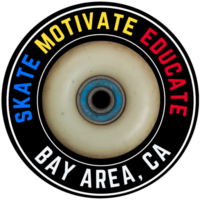Gov. Newsom Passes Law to Help
Struggling Readers
Governor Newsom just signed a new law called the Education Omnibus Budget Trailer Bill (SB 114). This law requires that all kids K-2nd be screened for reading difficulties, like dyslexia.
What Does it Mean?
- The State Board of Education will create rules and pick special tools to test students’ reading skills.
- Local Education Agencies (LEAs) will be required to select screening tools from the approved list provided by the State Board of Education. These tools will be used for annual screening of students in grades K-2.
- Schools will use these tools every year starting in 2025-2026.
- The results will be shared with parents, along with explanations and suggestions for helping their child if needed. (But parents can choose not to have their child screened if they want.)
This means that kids who need extra help with reading will get it sooner.
A big thank you to Governor Newsom and Senator Portantino for making this happen. They care about helping all students succeed in school. We also want to give a shout-out to EdVoice and Decoding Dyslexia CA, who worked tirelessly to get this law into action.
We’re excited about this new law and look forward to working with the State Board of Education to make sure it helps as many students as possible. Together, we can make sure every child gets the support they need to be successful readers!
This is a great deal because it means that kids who need extra help with reading will get it sooner. We want to say a big thank you to Governor Newsom and Senator Portantino for making this happen.
We also want to give a shout-out to Decoding Dyslexia CA, who worked really hard to make this law a reality. And a special thank you to EdVoice for supporting us along the way.

Why Tho?
Screening K-2 students for dyslexia will benefit students and schools tremendously.
- Early Identification: Dyslexia is a learning disorder that affects reading and language processing skills. By screening students in kindergarten through second grade, dyslexia can be identified early on, allowing for timely intervention and support. Research shows that early identification and intervention lead to better outcomes for students with dyslexia.
- Targeted Instruction: Screening helps identify students who may need specialized instruction tailored to their specific learning needs. With early identification, educators can implement targeted strategies and interventions to address the challenges associated with dyslexia. Research indicates that targeted instruction significantly improves reading skills and academic achievement for students with dyslexia.
- Preventing Academic Gaps: Dyslexia can lead to significant difficulties in reading, which can impact academic progress and overall educational attainment. By screening K-2 students, schools can proactively address reading difficulties before they become substantial gaps in learning. Early intervention can prevent academic delays and bridge the gap between struggling readers and their peers.
- Personalized Support: Screening allows educators and parents to better understand a student’s reading profile and individual needs. It enables the development of personalized support plans, including accommodations, assistive technologies, and specialized instruction, to optimize the student’s learning experience. Research suggests that tailored interventions improve reading skills, self-confidence, and overall well-being for students with dyslexia.
- Parental Involvement: Screening provides an opportunity for parents to become aware of their child’s reading difficulties and engage in their educational journey. Parents can receive screening results, interpretation, and recommendations for support. This involvement empowers parents to collaborate with educators, advocate for their child’s needs, and access appropriate resources and services.
- Long-Term Benefits: Evidence-based research indicates that early identification and targeted intervention for dyslexia can have long-term positive effects. Students who receive early support are more likely to develop stronger reading skills, experience increased self-esteem, and have improved academic outcomes throughout their educational journey.
By implementing K-2 screening for dyslexia, based on research-backed approaches, schools will better support students with dyslexia, promote inclusive education, and ensure that every child has an equal opportunity to succeed academically.


